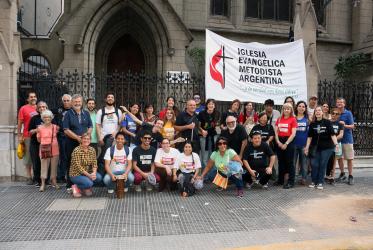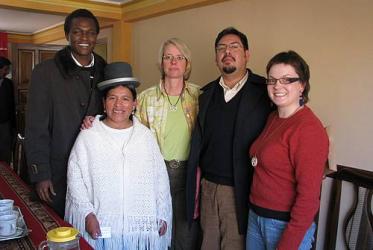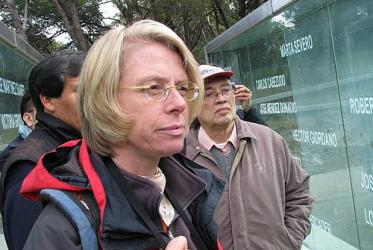Displaying 1 - 16 of 16
01 September 2017
Churches help keep memories alive for Argentinian people
07 April 2016
Human rights defender Charles Harper honoured by Argentinian government
19 September 2014
Ecumenical leaders bring concerns about Honduras to Washington
29 October 2009
Humanitarian zones resist violence in Colombia
22 December 2008
The Colombian people want and deserve peace, say Living Letters
18 December 2008
International ecumenical team to visit Colombia
04 December 2008










